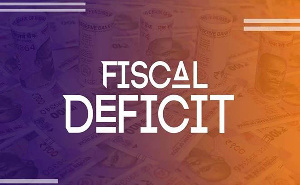- Home - News
- Polls
- Year In Review
- News Archive
- Crime & Punishment
- Politics
- Regional
- Editorial
- Health
- Ghanaians Abroad
- Tabloid
- Africa
- Religion
- Election 2020
- Coronavirus
- Photo Archives
- News Headlines
- Press Release
Editorial News of Thursday, 18 June 2020
Source: thebftonline.com
B&FT Editorial: Closing the widening fiscal gap needs drastic measures
An Oxfam report believes that in view of the ravages caused by coronavirus on economies, it will be important for managers of the economy to adopt drastic measures which may be unpopular with the masses, but could yield the country some revenue to close the widening fiscal gap.
Some of the measures Oxfam is proposing include the introduction of an additional tax band on higher incomes; removing personal reliefs on higher-income earners; re-introduction of fair luxury vehicle levies; implementation of a digitised property taxation system; and review and amendment of generous tax exemptions.
Other measures include implementing effective taxation of high net worth individuals; improving tax communication; implementing a robust ICT-led administrative system among others.
Removing such tax freebies for higher income tax earners – such as those earning over GH¢20,000 a month, the report says, could generate substantial revenue while promoting one of the core aims of taxation, which is fairness.
Another tax that the think-tank proposes be re-introduced is the luxury vehicle levy, which was scrapped after a year of its introduction as government couldn’t realise the projected revenue from it. Oxfam believes the tax failed due to its poor implementation and should be re-introduced.
For example, the monetary value of the vehicle should be used to determine its luxuriousness, and taxes must be reviewed downward as the vehicles grow old. Oxfam also believes ‘exemptions’ must be reviewed to ensure that key sectors likely to drive the economy are supported, and not powerful corporations.
On the face of it, these proposals being tabled by Oxfam make economic sense when considering the widening of the fiscal gap; but it is also equally significant to note that COVID-19 has slowed economic activity with many enterprises operating at half capacity, cutting staff strength and offering slashed salaries.
Therefore, to additionally burden them with more taxes might seem unconscionable – but then again, how does the state raise needed revenue? Some form of taxation is the devil in the detail, and it’s up to managers of the economy to decide the best method of raising revenue to close the yawning fiscal gap.
We are in a situation between a rock and a hard place. There is no easy way out!
Entertainment










